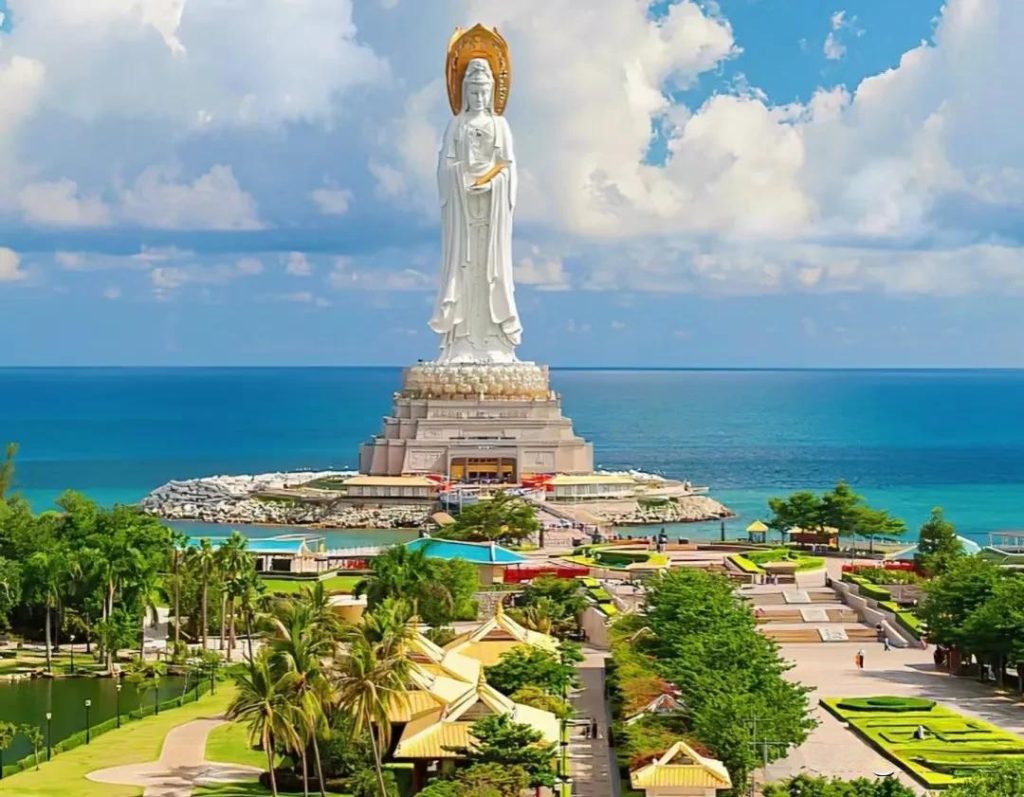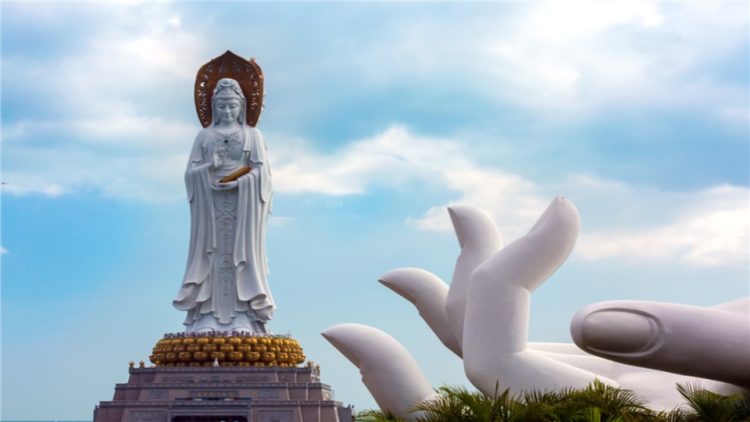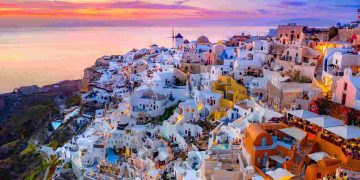Nature has an unparalleled ability to stir emotions within us. From towering mountains to tranquil lakes, vast deserts to lush forests, there are landscapes around the world that resonate deeply within the human soul. Whether we are standing before the crashing waves of an ocean, gazing at a serene sunset, or walking through a mist-covered forest, certain natural environments evoke profound emotional responses that are difficult to explain but undeniably powerful.
But why do certain natural landscapes hold such emotional sway over us? What is it about these places that causes us to pause, reflect, and feel a deep connection? In this article, we will explore the psychological, cultural, and spiritual reasons behind the emotional resonance of specific natural landscapes and why they evoke such powerful reactions in those who encounter them.
1. The Psychological Impact of Nature
The way nature affects us psychologically is one of the primary reasons why certain landscapes evoke strong emotions. This impact can range from feelings of awe and wonder to deep peace or even melancholy.
a. The Biophilia Hypothesis
The biophilia hypothesis, proposed by biologist Edward O. Wilson, suggests that humans have an inherent connection to nature because our evolutionary history has been shaped by our environment. Over millions of years, humans have evolved in close relationship with the natural world, and our ancestors lived in harmony with landscapes that provided them with shelter, food, and security. As a result, we are hardwired to find comfort and solace in natural spaces.
Certain landscapes, especially those that appear to be “untouched” by human hands, can evoke feelings of belonging and safety. For example, gazing out over a peaceful forest or a serene lake can bring a sense of tranquility, as these environments might remind us of our evolutionary roots.
b. The Power of Awe
Natural landscapes that are vast, grand, or awe-inspiring, such as mountain ranges or expansive deserts, tend to elicit a response of awe. Awe is an emotion that is often experienced when we encounter something much larger or more powerful than ourselves. This feeling of being dwarfed by the majesty of nature can invoke a sense of humility, reminding us of our place in the grand scheme of the universe.
Places like the Grand Canyon, the Himalayas, or Niagara Falls can make us feel small in the face of nature’s vastness, which often leads to self-reflection and deep emotional resonance. This humbling effect allows us to connect with the landscape in a more meaningful way.
c. The Need for Calm and Restoration
In today’s fast-paced, high-stress world, many of us are constantly seeking respite. Nature, particularly tranquil landscapes such as calm lakes, peaceful beaches, or serene forests, offers a much-needed escape. Research in eco-therapy and nature-based mindfulness has shown that being in nature can significantly reduce stress, lower heart rates, and promote a sense of well-being.
When standing before a calm body of water, feeling the gentle breeze on your face, or listening to the rustling of leaves in the wind, our minds slow down, allowing us to feel a sense of inner peace. These natural landscapes serve as emotional sanctuaries, providing a space for quiet contemplation and emotional rejuvenation.
2. The Cultural and Spiritual Connections to Nature
Beyond psychological reasons, there are deep cultural and spiritual connections that tie certain landscapes to powerful emotions. Different cultures and belief systems have long seen nature as a source of inspiration, comfort, and spiritual nourishment.
a. Sacred Landscapes and Spiritual Significance
Many cultures and religions attribute spiritual significance to certain natural landscapes. In these cultures, mountains, rivers, forests, and even specific trees or rock formations are viewed as sacred or holy. The connection to these places is deeply emotional because they symbolize more than just physical beauty—they represent the divine, the eternal, or the sacred.
For example, Mount Fuji in Japan is not just a picturesque mountain; it is a spiritual symbol for the Japanese people, representing purity and enlightenment. Similarly, the Ganges River in India holds profound spiritual meaning, with many seeing its waters as a purifying force. Stonehenge in England, and the many ancient sites like it, evoke mystery and awe, reminding us of human connection to the earth and the cosmos.
When visiting these places, many people experience a sense of awe, reverence, and reverence, which contributes to the deep emotional resonance that these landscapes have across generations.
b. Nature as a Symbol of Life and Death
Certain landscapes, like vast deserts or fog-covered mountains, can evoke profound emotions related to life and death. Nature’s impermanence—seen in the changing of seasons, the cycles of birth and decay, and the passage of time—is something that many people can relate to on a deeply personal level. In these environments, we are reminded of our own mortality, which leads to feelings of sadness, nostalgia, or even gratitude for the fleeting moments we have.
Autumn, with its vibrant leaves that soon fall to the ground, is often associated with the passing of time, offering us a bittersweet reflection on our own journey through life. The ocean, with its tides that ebb and flow, symbolizes life’s eternal cycle, bringing both comfort and melancholy as we witness nature’s constant renewal.
c. Connection to Ancestral Landscapes
For many people, certain landscapes evoke emotional responses because they are tied to their ancestral heritage. These places carry stories, traditions, and memories passed down through generations. The landscapes of the African savanna, for example, are deeply intertwined with the cultural and spiritual practices of various African communities, representing both beauty and survival.
In many Indigenous cultures, natural landmarks such as mountains, rivers, or forests hold deep ancestral significance. These places are considered not only physical locations but also sacred spaces that honor ancestors and connect people to their history. Visiting these landscapes can therefore evoke a strong emotional connection, reinforcing a sense of identity and continuity.

3. The Role of Sensory Perception in Nature’s Emotional Impact
Our emotional connection to nature is also deeply influenced by our sensory experiences. The way a landscape feels, smells, sounds, and looks can intensify the emotional impact it has on us.
a. The Sensory Power of Sound
The sounds of nature can evoke powerful emotional responses. The sound of a gentle breeze rustling through the trees, the crashing waves of the ocean, or the chirping of birds in a forest are all sounds that can calm and soothe the mind. Conversely, louder, more chaotic natural sounds—such as thunderstorms or waterfalls—can invoke feelings of excitement, awe, or even fear.
Certain natural sounds tap into our basic instincts, such as the sound of water, which often symbolizes life and nourishment. For many, the sound of waves lapping against the shore or a babbling brook can elicit a sense of peace, calm, and emotional grounding.
b. The Visual Impact of Color and Light
Nature’s colors and light play a massive role in how we emotionally respond to a landscape. The deep greens of a forest, the golden glow of a sunset, or the vibrant blues of the ocean all evoke different emotional responses. For example, blue, associated with water and sky, often symbolizes peace, calm, and infinity. Meanwhile, the rich greens of forests or fields are often linked to renewal, growth, and life.
The interplay of light and shadow, especially at dawn or dusk, can create emotional drama, transforming an ordinary landscape into a space of reflection, nostalgia, or wonder.
c. The Textures of Nature
Touch also plays a part in our emotional connection to nature. The roughness of tree bark, the softness of moss, or the coolness of a river stone can create feelings of comfort or grounding. The tactile experience of nature reminds us that we are part of the physical world and fosters a deeper, more visceral connection to the environment.
4. Nature’s Timelessness and Our Deep Need for Connection
At the core of our emotional resonance with certain natural landscapes is our innate need for connection to something greater than ourselves. Nature offers us a sense of timelessness, permanence, and stability—qualities that are especially meaningful in a world that often feels chaotic and transient. Standing before a massive mountain range, or watching the slow flow of a river, reminds us that there are forces greater than our individual lives, and that nature’s cycles of birth, death, and rebirth continue whether we are present or not.
In these moments, nature has the power to evoke not only deep emotional responses but also a sense of belonging to something larger—whether it’s the natural world itself, our shared human history, or our spiritual beliefs.
Conclusion
The emotional resonance we experience in certain natural landscapes is rooted in a complex blend of psychological, cultural, sensory, and spiritual factors. From the awe of standing before vast mountains to the peaceful reflection beside a quiet lake, nature taps into deep parts of our psyche. It reminds us of our past, connects us to something larger than ourselves, and offers solace in times of distress.
Whether we seek comfort, adventure, awe, or serenity, nature’s landscapes serve as a mirror to our emotions. They evoke feelings that transcend words, offering us the chance to connect with the world in a way that is both personal and universal. These landscapes have the power to touch our hearts and change our lives, making them not just beautiful but profoundly meaningful.





















